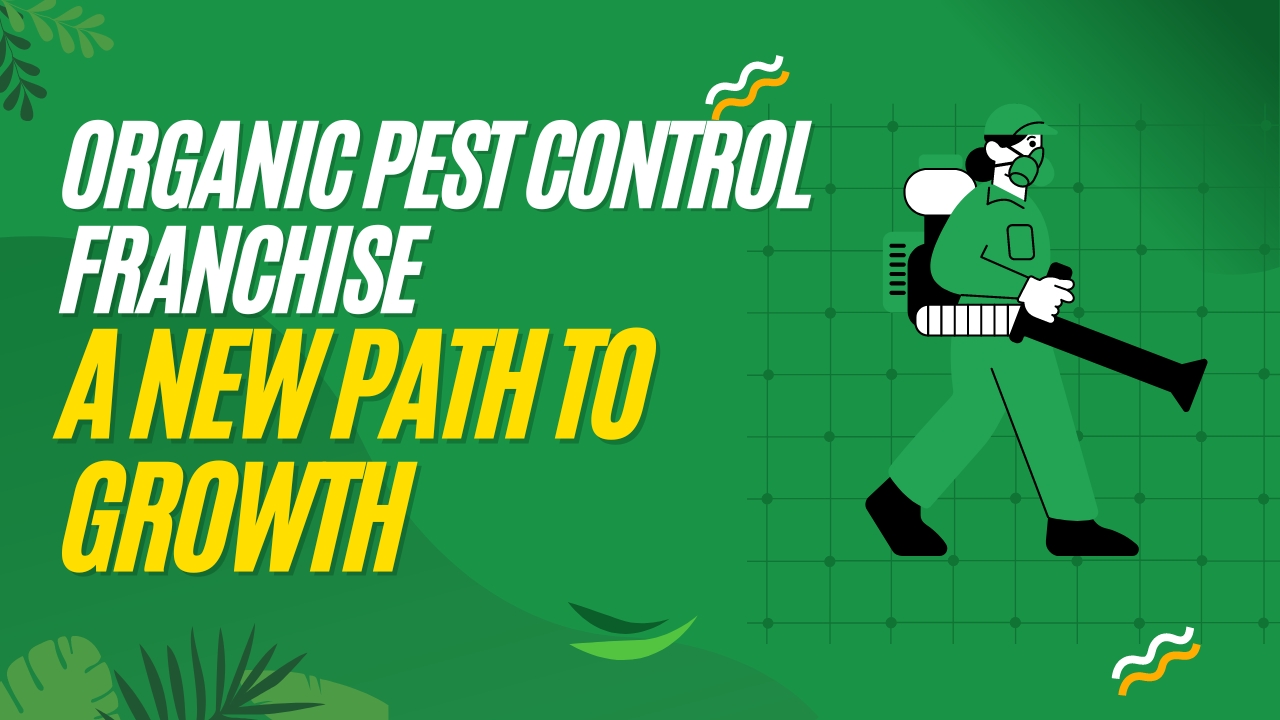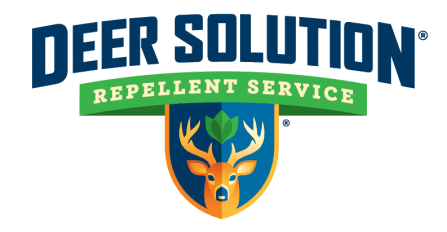In an era where environmental consciousness is paramount, the organic pest control franchise industry is emerging as a front runner in sustainable business practices. This green revolution encompasses a wide range of services, from general pest management to specialized offerings like deer repellent franchise operations and mosquito franchises. As consumers become increasingly environmentally conscious, these organic pest control franchise businesses are not just responding to market demands but actively shaping the future of pest management. By leveraging natural methods and sustainable practices, these franchises are proving that effective pest control doesn’t have to come at the cost of environmental health. The Deer Solution franchise opportunity leads the way with their deer repellent franchise, a new niche in the home services franchise industry.
The Rising Tide of Eco-Friendly Pest Solutions
The pest control industry is witnessing a seismic shift toward organic methods, driven by increasing environmental awareness and stricter regulations on chemical pesticides. This shift isn’t just a trend; it’s a fundamental change in how we approach pest management.
Market Trends Driving Organic Pest Control Franchises
The growing demand for organic pest control services stems from several factors:
- Regulatory changes, such as restrictions on certain chemical pesticides, are pushing the industry toward organic alternatives.
- Increasing consumer awareness about the environmental and health impacts of traditional pest control methods.
- Growing preference for sustainable and eco-friendly services across various industries.
Furthermore, these trends create fertile ground for organic pest control franchises to flourish. As consumer preferences align with environmental regulations, these franchises are uniquely positioned to meet market demands while contributing to ecological sustainability.
The Science Behind Organic Pest Management
At the heart of every successful organic pest control franchise lies a deep understanding of ecological balance and natural pest deterrents.
Integrated Pest Management: The Cornerstone of Organic Pest Control
Integrated Pest Management (IPM) is the approach that underpins organic pest control methods. It’s a comprehensive strategy that focuses on long-term prevention and management of pests through a combination of techniques:
- Biological Control: Utilizing natural predators or parasites to control pest populations.
- Habitat Manipulation: Altering the environment to make it less favorable for pests.
- Modification of Cultural Practices: Changing human behaviors that may attract or sustain pests.
- Use of Resistant Varieties: Selecting plants and materials that are less susceptible to pest damage.
Moreover, for organic pest control franchises, IPM isn’t just a method; it’s a business philosophy. It allows franchises to offer sustainable, long-term solutions that align with customer values and environmental goals.
The Power of Biological Control Agents
Biological control agents are living organisms used to control pest populations. They represent a cornerstone of organic pest management strategies. For instance:
- Ladybugs are deployed to control aphid populations in gardens and agricultural settings.
- Nematodes, microscopic worms, are used to combat soil-dwelling pests like grubs and termites.
- Bacillus thuringiensis (Bt), a naturally occurring bacterium, is effective against various caterpillar species.
Consequently, these methods allow organic pest control franchises to offer targeted, environmentally friendly solutions that don’t rely on synthetic chemicals.
The Organic Pest Control Franchise Business Model
Running an organic pest control franchise requires a unique blend of environmental stewardship and business acumen. Let’s explore the key components of this green business model.
Operational Logistics
First and foremost, franchise owners in the organic pest control industry are responsible for overseeing day-to-day operations, ensuring eco-friendly practices are upheld, and maintaining high-quality customer service. Key operational logistics include:
- Assessment and Planning: Franchisees conduct site inspections to develop customized pest management plans based on IPM.
- Application of Organic Methods: Franchisees and their teams apply eco-friendly pest control techniques, such as biological control agents and natural repellents.
- Monitoring and Follow-Up: Franchises regularly assess the effectiveness of treatments, making adjustments as needed for continued success.
- Customer Education: Providing clients with educational materials and information on long-term preventative measures helps build trust and ensure ongoing success.
Supply Chain Management
Moreover, maintaining an eco-friendly supply chain is crucial for organic pest control franchises:
- Sourcing organic and natural products from certified suppliers
- Implementing sustainable packaging and transportation practices
- Staying updated on new organic pest control products and technologies
Training and Certification
Franchise owners and technicians require specialized training in organic pest control methods, which includes:
- IPM certification programs
- Courses in entomology and plant pathology
- Ongoing education to stay current with the latest organic pest control techniques
Marketing and Customer Acquisition
Additionally, effective marketing for organic pest control franchises focuses on:
- Educating consumers about the benefits of organic methods
- Highlighting the long-term cost-effectiveness of sustainable pest management
- Leveraging eco-friendly certifications and partnerships
Challenges and Opportunities in the Organic Pest Control Franchise Industry
While the organic pest control franchise model offers significant opportunities, it also comes with unique challenges.
Overcoming Consumer Skepticism
Many consumers are skeptical about the effectiveness of organic pest control methods. Successful franchises address this by:
- Offering satisfaction guarantees to build trust
- Showcasing before-and-after results to demonstrate effectiveness
Navigating Regulatory Landscapes
The organic pest control industry is subject to various regulations:
- Organic certification requirements
- State and local restrictions on certain pest control methods
- Evolving environmental protection laws
Franchises must stay informed and adaptable to maintain compliance and leverage new opportunities as regulations change. Moreover, staying compliant helps franchises build trust with environmentally conscious consumers and local governments.
Seasonal Variations in Demand
Pest control is often seasonal, which can impact cash flow. Organic pest control franchises can address this by:
- Offering year-round preventative services
- Diversifying services to include related eco-friendly home maintenance
- Implementing effective budgeting and financial planning strategies
Specialized Services: Expanding the Organic Pest Control Franchise Model
While general pest control forms the core of most franchises, specialization can offer unique market opportunities.
The Deer Repellent Franchise Niche
Deer repellent franchises address a growing need in suburban and rural areas where human-wildlife conflicts are common. These specialized franchises:
- Utilize organic repellents derived from plant extracts and natural oils
- Implement habitat modification strategies to deter deer
- Offer eco-friendly fencing and barrier solutions
Mosquito Franchises and Organic Control Methods
With increasing concerns about mosquito-borne diseases, organic mosquito control franchises are gaining traction. These franchises focus on:
- Eliminating breeding sites through environmental management
- Using natural predators like mosquito-eating fish in water features
- Applying organic repellents and larvicides
By offering these specialized services, organic pest control franchises can tap into niche markets and differentiate themselves from competitors.
The Green Future of Pest Management
The organic pest control franchise model represents more than just a business opportunity; it’s a commitment to environmental stewardship and sustainable pest management. As consumer awareness grows and regulations tighten, these franchises are well-positioned to lead the industry toward a greener future.
For entrepreneurs and investors looking to enter the pest control industry, organic franchises offer a chance to build a successful business while making a positive impact on the environment. By leveraging sustainable methods, adapting to market trends, and overcoming unique challenges, organic pest control franchises are not just controlling pests – they’re cultivating a more sustainable world, one eco-friendly solution at a time.





